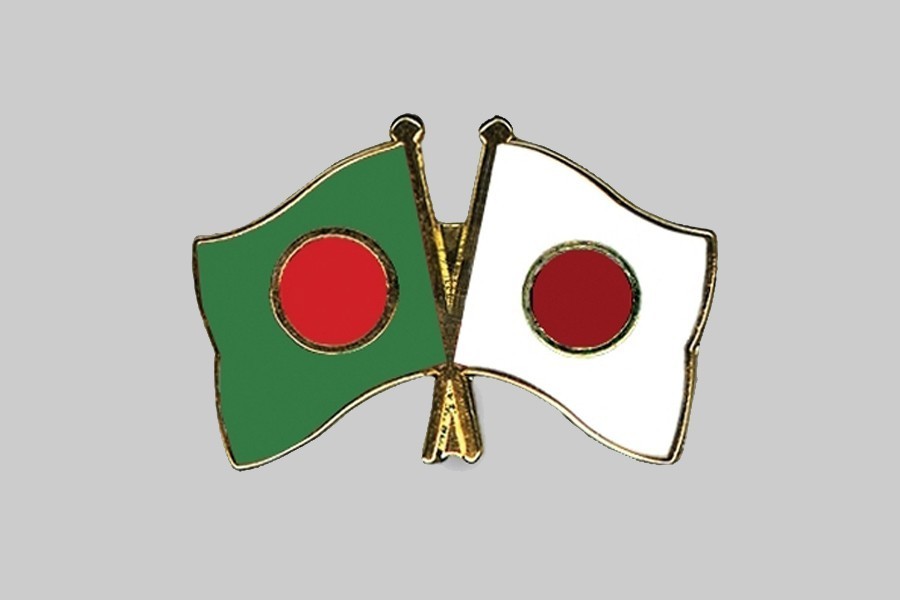Japan wants to sell military hardware to Bangladesh, said Naoki Ito, Japanese Ambassador to Bangladesh, on Tuesday.
Recently, a Japanese company came and met officials to assess Bangladesh’s interests in Japanese military hardware, the Ambassador informed while addressing the ‘DCAB Talk’ in Dhaka city.
As Japan has relaxed regulations regarding exports of defense equipment, some private companies started to sell such equipment to some ASEAN countries.
Mr Ito also disclosed that direct flights between Japan and Bangladesh will start this year.
People of both the countries, especially the investors, will be closer after the introduction of the direct flights, he hoped.
Asked about his country’s expectations about the next general election of Bangladesh, the Japanese envoy said that Japan wants to see a free, fair election.
Expressing Japan’s concern about the last general elections, the envoy said that Japan expects that this time the election will be better.
According to the schedule, the election in Bangladesh will be held at the end of the next year, but the media is talking about the election every day triggering interests among the diplomatic circle.
“We have noticed some positive steps by the government in this regard including the enactment of the Election Commission law. We hope and [are] expecting that the government will take measures to hold free fair and better election compared to the previous elections” Mr Ito said.
In this regard, he urged for ensuring freedom of media as the media has an important role to play to ensure that every single vote can be counted and every voter can have his or her say.
“I am going to continue to raise this point” the Japanese Ambassador said.
The Japanese envoy pointed out that Bangladesh is going to be an ideal investment destination for its impressive economic growth, rising exports, growing infrastructure and for the prospects of supply chain diversification.
68 per cent of Japanese investors are eager to invest in South Asian region and Bangladesh has the potentials to be one of the destinations, he added.
Referring to the 3 billion aid package offered by Japan to Bangladesh recently, he said no country in the world has got such a dramatic increase in assistance in such a dramatic way.
“We will continue to be engaged in the development process of Bangladesh.”
On the issue of the Indo Pacific Strategy, he said that both Japan and Bangladesh share the same basic principles like democracy, market economy, rules-based international order and free Indo-Pacific which are also the vision of the IPS (Indo-Pacific Strategy).
Responding to a question he said on the launching of the IPEF (Indo-Pacific Economic Framework), the Japanese Ambassador said the IPEF was launched by the US in Tokyo on the sideline of the Quad meeting.
“This is a very timely initiative so we have joined the initiative,” he added.
The documents of the recently concluded US-Bangladesh economic consultation meeting showed that Bangladesh had a certain level of interest in the IPEF, he noted.
About the Japan-Bangladesh FTA, he said, this is important to help Bangladesh in absorbing the post-graduation shocks.
Recently Japanese and Bangladeshi companies recommended broader economic partnerships and FTA between the two countries, Mr Ito said. He informed that Japan government is considering the Bangladesh's request for a feasibility study on FTA.
Lauding recent steps in improving the investment climate, he said even during the pandemic the officials worked hard to ease doing business.
But he pointed out that the investment climate needs to be further improved and issues like customs clearances remain hurdles for the investors.
He said public-private economic dialogue between the two countries can be held this year, and the SEC is preparing to hold an ‘Investment Road Show’ in Japan soon.
Expressing his country’s interest to recruit young people from this country the envoy said, “We need more skilled young Bangladeshis.”
Referring to his recent visit to Bhasanchar Island, the envoy said he was impressed by the quality infrastructure of the island.
But he stressed the need for better service delivery saying the international agencies and the government need to provide better services.
The 30 thousand Rohingya refugees, who were relocated to the island, have high expectations, especially in getting economic livelihood opportunities.
But, of course, the first and foremost priority is repatriation, the Ambassador said adding that Japan has been vocal about demanding improvement of the situation in Myanmar.
“We have told the military government to end violence” he said hoping that the process of repatriation might start soon”
Though political reality will not allow the overnight solution to the Rohingya problem, the stakeholders should gear up, he noted.
According to the envoy, early repatriation is crucial to realise the Indo Pacific vision as the prolongation of the Rohingya stay may ‘destabilize the region’.
Japan will continue to work with the Myanmar government to find a solution to the Rohingya problem, he assured.
He said, in general, Japanese projects are doing very good in terms of quality, transportation and in maintaining timeline though some of the projects got delayed due to the pandemic, the envoy said.


